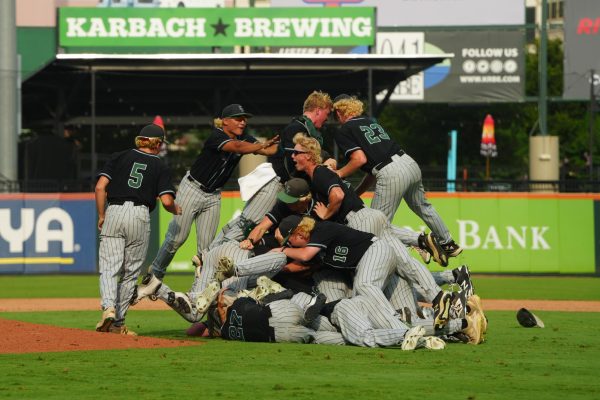Elective classes should no longer impact GPA
Students should be able to take any electives they want without worrying about their GPA dropping during high school.
September 9, 2021
How many times have you been discouraged from taking a class that interests you because of the potentially harmful effect on your class rank? Have you ever felt that it was unfair that an A in a class like eSports has the same effect on your GPA as an A in a class like Medical Terminology? Or perhaps you feel that trying to keep your 98 in art is taking away from the experience of trying to express yourself with a paintbrush. All of these problems have the same solution: change the GPA system.
The GPA system is needlessly complicated by non-core classes, classes that aren’t part of the main required Texas education curriculum. These courses include fine arts, specialized career classes, and sports; courses that are meant to inspire interest in activities outside of the general educational topics that every student takes. While every student at Kingwood Park will eventually take core classes like biology and algebra, not all will opt to participate in Theater or take a financially-focused class like Money Matters. This raises the question of the validity of using optional classes, some that supposedly function as a mental break for students, as a factor in GPA.
The most pressing argument for discounting non-core classes in GPA is the issue of standardization. Anyone can see that all classes were not created equal; so why does our academic system treat them like they are? For example, a 95 in Art 1 does the same for your GPA as a 95 in Aquatic Science , which is the same as a 95 in PE. These classes are totally different, but they factor into our GPA as if they are objectively the same difficulty. These classes have no business playing into our supposedly standardized GPA. Instead, when calculating GPA, Humble ISD should focus only on a student’s performance in the required subjects: math, science, RELA, and social studies. These core classes tend to be much more standardized overall than their non-core counterparts, and they portray a more accurate representation of a student’s academic competence.
Not to say that non-core classes don’t matter – they do. Many students, myself included, feel that the best parts of their high school experience were spent in these classes. That’s why it’s such a shame that our ranking system discourages their participation. Almost all non-core classes can only be weighted up to a 5 on our GPA scale, while honors classes, which are an option in every core subject, can be worth up to a 6. Too many academically-focused athletes feel they are forced to either use one of their valuable pass-fail options or give up participation in their sport to keep a competitive class rank. Students shouldn’t have to choose between the once-in-a-lifetime experience of high school sports and a good GPA.
It’s a mystery to me as to why the theoretical system described in this column hasn’t been the precedent for schools around the state. But it seems that the idea could be catching on. Dallas ISD has just recently adopted a similar GPA system that, according to their website, was designed to encourage fairness and a student’s choice to pursue sports and other non-core classes. It’s time that Humble ISD does the same.













